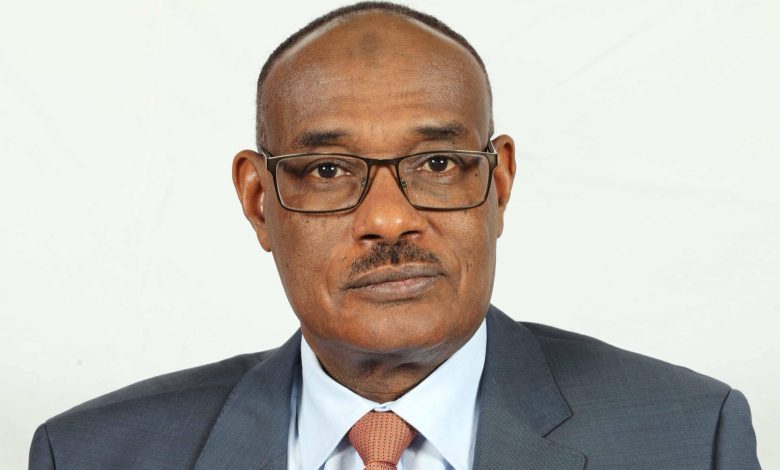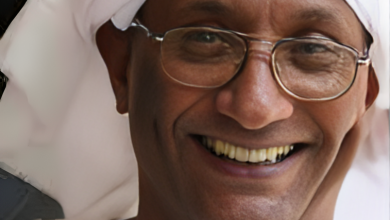When International justice is Politicised: American Award to Harun Extradition (1 – 2)

Dr. Al-Dardiri Mohamed Ahmed
As much as the State in America is keen to distance itself from distorting the scales of internal justice, it does not care about international justice. Rather, it does not refrain from politicizing it and bending its neck according to the requirements of American interests.
The announcement issued by the US State Department yesterday to include Ahmad Harun in its reward program for those accused of committing war crimes is only the latest example of what we mentioned.
This is because Ahmad Harun is not a fugitive from justice until a reward is announced for his arrest.
He is not currently required to appear before the International Criminal Court, which in any case is the last court that the United States would consider cooperating with, whether under Republican or Democratic administrations. There is not sufficient evidence to bring Haroun to trial before that court, according to the confession of its public prosecutor.
However, there is a political goal that America hopes to achieve by announcing an award for the extradition of Ahmed Haroun, in the style of Western movies.
In the second week of this war, as is known, the fighting reached the Cooper Prison area, the prison was affected, and services stopped there. Then, Ahmed Harun announced in a loud statement issued on April 25, 2023, that he and the leaders of the rescue system imprisoned in Kober Prison had reached an agreement with the authorities to leave the prison due to the collapse of security and the interruption of services.
This statement was televised by Taiba TV. It was published by Al Jarida newspaper among others.
A video was also recorded showing how the prison was affected by the clashes, and another documenting the understanding reached with the authorities and the announced release of the prisoners.
These videos were widely circulated in the media. The statement confirmed that all former officials are ready to return to prison and face the charges against them as soon as security is restored.
Thus, Ahmad Harun is not fleeing from justice. Rather, he was released from prison with the permission of the authorities, and he has a known place of residence inside Sudan.
He moves freely and attends various events, and his activities were monitored by the media. Although State Sovereignty in Sudan has recently declined to abysmal levels, the announcement of an award by a foreign state, to hand over a Sudanese citizen present on the territory of his country, at a known address, to an international court, to which the state announcing the award is not a party or obligated to cooperate, will go down in history.
As it is the worst manifestation of the violation of sovereignty that Sudan has experienced. This is in terms of facts.
As for the law, after the change that took place in April 2019, Fatou Bensouda, the former Prosecutor of the International Criminal Court (ICC )activated the principle of “complementarity” regarding to Sudanese issues.
When the International Criminal Court ICC activates this principle stipulated in Article 17 (1) (a) of the Rome Statute, it suspends consideration of the case because a state with jurisdiction has undertaken the investigation or prosecution. On October 20, 2020, Bensouda visited Khartoum, in a precedent that enthusiasts for this court considered a breakthrough, and she delivered a speech at a press conference in that she said that the International Criminal Court ICC is a “court of last resort.” She explained this by saying: “
This means that national justice systems bear the primary responsibility for investigating and prosecuting individuals who commit such crimes. If this does not happen, the ICC exists as a mechanism of last resort to prevent failure.” Rather, it went further than that and declared publicly that it respects the principle of “complementarity” regarding Ahmed Haroun case and other cases in which it named the accused.
She said: “We look forward to continuing our dialogue with the Sudanese authorities to ensure progress on these issues with full respect for our roles and mandates and the principle of complementarity.” Thus, during her “historic” visit, Bensouda did not ask the Sudanese authorities to hand her over to Ahmed Haroun or anyone else.
Since Haroun was in the hands of these authorities in Kober prison, he could have been deported smoothly to The Hague if the Public Prosecutor had requested it. Surprisingly, the one who requested deportation to The Hague was Maulana Ahmad Harun himself. In May 2021, Haroun surprised the Sudanese government by requesting that he be transferred to The Hague to be tried before the International Criminal Court.
He justified his request by saying that he no longer trusts the country’s legal structure or the integrity of justice, which has been politicized under the transitional period and its fragile government.
Haroun said that despite the politicization of the International Criminal Court ICC , he might find among its judges “a Negus who does not wrong anyone.”
Shortly followed that announcement, Bensouda visited Sudan for the second time in June 2021.
During her visit, she said that she “discussed” with the officials the possibility of “handing over Ahmed Haroun.” It justified submitting this request, despite the entry into force of the principle of “complementarity,” by saying that Ahmed Haroun “is linked to the case of Ali Kusheib ,” and that it believes “that the two men should be tried in one court.”
However, the Sudanese authorities did not respond to Bensouda’s request and adhered to the principle of “complementarity.”
After leaving Khartoum, Bensouda traveled to New York, where she addressed the Security Council and appealed to it, saying: “I appeal to this Council to persuade Sudan to immediately fulfill Haroun’s wish and facilitate his transfer to the Criminal Court without delay.”
However, the Security Council also did not respond to her request. Rather, a number of delegates referred in their interventions to the principle of “complementarity,” including, ironically, the permanent representative of the United Arab Emirates (UAE)who held a non-permanent seat in the Security Council.
Thus, it became clear that the arrest warrant issued by the International Criminal Court ICC in 2007 against Ahmad Harun had been invalidated. According to the procedural rules in force in that court, that memorandum remains suspended unless it is decided that Sudan is considered a state unwilling or unable to initiate investigation or prosecution procedures.
The body that decides this is the Pre-Trial Chamber of the International Criminal Court based on a request submitted to it by the Prosecutor of the Court.



